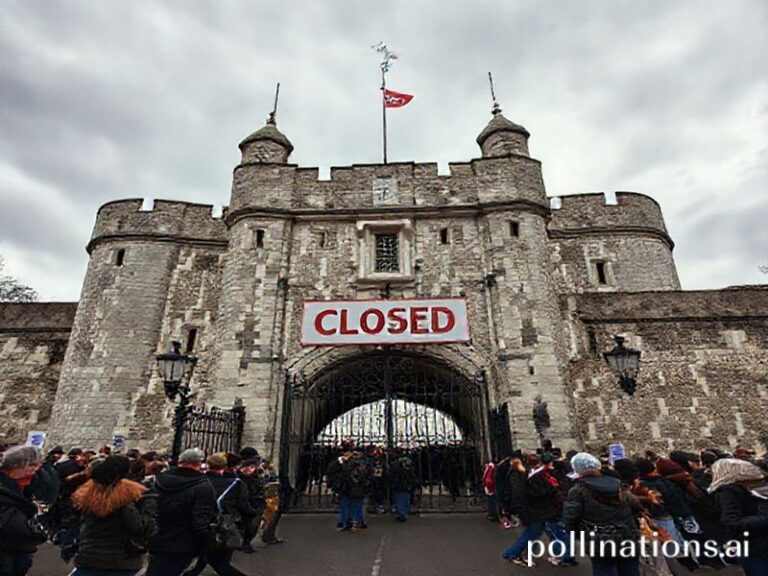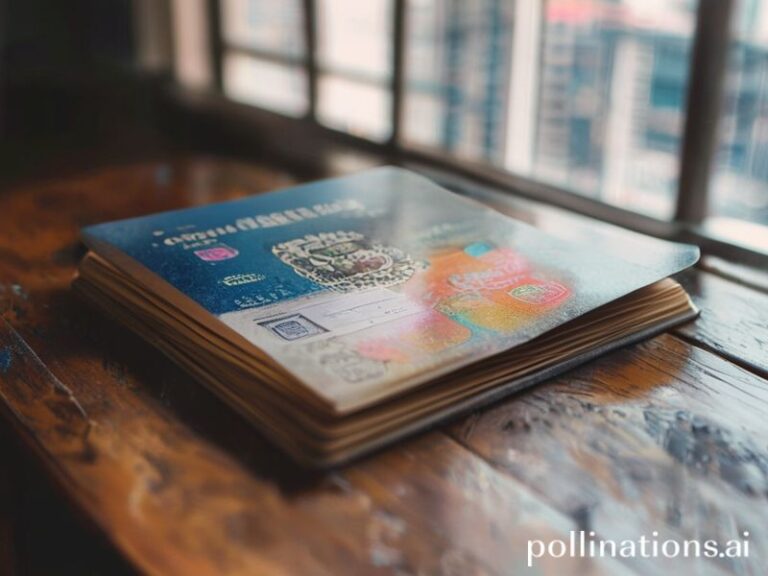BBC Radio 1: The Last British Invasion Force Still Conquering Ears Worldwide
The Empire Strikes a Chord: How BBC Radio 1 Became the World’s Guiltiest Pleasure
By Our Man in the Cheap Seats, somewhere over the Atlantic
There’s a moment, usually around 02:47 GMT, when the night-shift nurse in Lagos, the rideshare driver in Jakarta, and the insomniac coder in Vancouver all find themselves humming the same tinny synth hook. The source? A 128-kbps stream from a squat brick building on London’s Great Portland Street, courtesy of a station originally designed to stop British teenagers from stabbing each other with knitting needles to prog-rock marathons. Ladies, gentlemen, and everyone currently pretending to work, welcome to BBC Radio 1: the last surviving British invasion force still capable of global conquest, armed only with pre-release Billie Eilish leaks and Greg James’s questionable banter.
Internationally, Radio 1 functions like an audio passport forged in the backroom of a Camden pub. Its playlist—equal parts TikTok detritus and future stadium anthems—travels faster than any vaccine rollout. In Nairobi, 16-year-olds debate whether the new Central Cee track is “mid” while dodging matatu conductors; in São Paulo, favela parties synchronize their bass drops to the exact timestamp of Annie Mac’s Hottest Record. The British Empire may have shrunk to a handful of islands squabbling over fish quotas, but its cultural attaché is alive, well, and broadcasting at 97-99 FM (or “wherever you get your podcasts,” as the Corporation now concedes between gritted teeth).
Of course, the station’s global reach is partly an accident of history: the BBC World Service’s crustier sibling piggybacking on decades of colonial infrastructure—undersea cables laid by men in pith helmets who would spontaneously combust if they heard “WAP.” Today, those same cables carry the Future Sounds stream to 39 million pairs of ears outside the UK, each listener politely ignoring the weather bulletins about drizzle in Dorset. It’s soft power disguised as soft rock, a diplomatic coup cheaper than aircraft carriers and considerably less likely to leak radioactive material into the Solent.
The economic model is equally sardonic. While Spotify hemorrhages cash like a hemophiliac in a razor blade factory, Radio 1 survives on the quaint notion that citizens might actually pay for culture via a license fee. Foreigners, naturally, are exempt from this moral obligation, creating the perfect colonial hangover: free content subsidized by British grandmothers who just want to watch Vera reruns in peace. Call it reparations with a bass line.
Yet the station’s real export is normative. Every Friday, the Official Chart—now a Spotify playlist with delusions of grandeur—declares which song rules the anglosphere. From Mumbai call centers to Malmö skate parks, the message is clear: if it’s not on Radio 1, it’s not happening. Local genres must genuflect to the 3:30 pop structure; even K-pop, that juggernaut of soft-power maximalism, still debuts its English singles at Radio 1’s Live Lounge like a chaebol heir paying respects to a fading monarch.
There are, naturally, casualties. Somewhere in Reykjavík, an indie band just abandoned their native tongue because “Radio 1 won’t spin Icelandic screamo.” In Accra, afrobeats pioneers self-censor their lyrics to avoid the watershed, proving colonialism evolves faster than viruses. Meanwhile, the station’s daytime DJs—imagine the cast of a mediocre sitcom handed nuclear codes—dispense life advice to listeners whose countries the hosts couldn’t locate on a Risk board.
But perhaps that’s the point. In an era when nations weaponize everything from microchips to memes, Radio 1 offers a rare neutral zone: a sonic Switzerland where a Ukrainian teenager and a Russian teenager can both pretend “Flowers” by Miley Cyrus is about their ex. It’s not quite world peace, but in 2024 we’ll take what we can get—even if it comes with mandatory Harry Styles interviews.
So tune in, drop out, and remember: every time you nod along to a Radio 1 “Tune of the Week,” somewhere in Whitehall a civil servant chalks up another victory for Global Britain. God save the Queen—preferably in hi-res FLAC.







